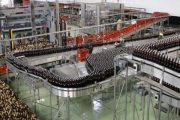Categories
Recent Posts
Archives
- April 2024
- March 2024
- February 2024
- January 2024
- December 2023
- November 2023
- October 2023
- September 2023
- August 2023
- July 2023
- June 2023
- May 2023
- April 2023
- March 2023
- February 2023
- January 2023
- December 2022
- November 2022
- October 2022
- September 2022
- August 2022
- July 2022
- June 2022
- May 2022
- April 2022
- March 2022
- February 2022
- January 2022
- December 2021
- November 2021
- October 2021
- September 2021
- August 2021
- July 2021
- June 2021
- May 2021
- April 2021
- March 2021
- February 2021
- January 2021
- December 2020
- November 2020
- October 2020
- September 2020
- August 2020
- July 2020
- June 2020
- May 2020
- April 2020
- March 2020
- February 2020
- January 2020
- December 2019
- November 2019
- October 2019
- September 2019
- August 2019
- July 2019
- June 2019
- May 2019
- April 2019
- March 2019
- February 2019
- January 2019
- December 2018
- November 2018
- October 2018
- September 2018
- August 2018
- July 2018
- June 2018
- May 2018
- April 2018
- March 2018
- February 2018
- January 2018
- December 2017
- November 2017
- October 2017
- September 2017
- August 2017
- July 2017
- June 2017
- May 2017
- April 2017
- March 2017
- February 2017
- January 2017
- December 2016
- November 2016
- October 2016
- September 2016
- August 2016
- July 2016
- June 2016
Featured
Most Commented Posts
 4 Anglophone detainees killed in Yaounde
4 Anglophone detainees killed in Yaounde
19 comments Chantal Biya says she will return to Cameroon if General Ivo Yenwo, Martin Belinga Eboutou and Ferdinand Ngoh Ngoh are sacked
Chantal Biya says she will return to Cameroon if General Ivo Yenwo, Martin Belinga Eboutou and Ferdinand Ngoh Ngoh are sacked
13 comments Anglophone Nationalism: Barrister Eyambe says “hidden plans are at work”
Anglophone Nationalism: Barrister Eyambe says “hidden plans are at work”
12 comments The Anglophone Problem – When Facts don’t Lie
The Anglophone Problem – When Facts don’t Lie
12 comments Largest wave of arrest by BIR in Bamenda
Largest wave of arrest by BIR in Bamenda
10 comments
Latest Tweets
Featured
-

Kenya: Helicopter crash kills defense chief and nine senior officers
-

4th Cameroon Investment Forum opens in Douala
-

Cameroon doctors flee to Europe, North America for lucrative jobs
-

Dortmund sink Atletico to reach Champions League semi-finals
-

US: Trump media group plans TV streaming platform
-

Cameroon is broken: Who can fix it?
-

Cameroonian beer and soft drinks exports soar by 73% and 46.6% in 2022
© Cameroon Concord News 2024





12, November 2019
Southern Cameroons Crisis: Biya Spills the Beans 0
Cameroon’s President, Paul Biya, has finally let the cat out of the bag in the French Capital where he has declared that the best Southern Cameroonians can get is a Special Status which, in his mind, does not imply that he is splitting the country.
Mr. Biya told delegates attending the second edition of the Paris Peace Forum on Tuesday, November 12, 2019, that given the cultural and historical differences between Anglophones and Francophones, Southern Cameroons would be granted a Special Status as stipulated in the country’s constitution.
The 86-year-old dictator said that the two English-speaking regions would be granted special status which falls short of the expectations of federalists at a live TV program coordinated by Mo Ibrahim, a telecommunications billionaire who awards prizes on good governance to African leaders who leave power voluntarily and have made their countries better than they met them.
Journalists and other observers of Cameroon’s political landscape have been seeking to know what was in the cards for Southern Cameroonians since Mr. Biya’s so-called Major Nation Dialogue which was held in the nation’s capital, Yaounde..
Mr. Biya, who has been shuffling himself along in France like a stalling car, is clearly showing signs of senile decay and this calls his a ability to govern the Central African country into question.
For more than three years, the country has been caught up in a downward political and economic spiral following protests by Southern Cameroonian teachers and lawyers.
Their grievances have included marginalization and unequal distribution of the country’s natural resources and the chaos has robbed the government of much-needed resources to undertake many development projects.
Lawyers and teachers initially called for a federal system, but when the government responded with a heavy hand, things got out of control, giving separatists a platform to spread their gospel of separation.
The crisis has dealt a severe blow to the country’s economy. Ghost town operations and threats from the separatists have resulted in the failure of several state-owned corporations.
For many decades, the country’s unemployment rate has remained stubbornly high and crippling taxes have taken the wind out of the sails of many small businesses.
While Biya and his men hold that they are offering Southern Cameroonians a good deal, many observers hold that anything short of a federal system might not douse the fire in many minds in the two English-speaking regions of the country.
By Joachim Arrey